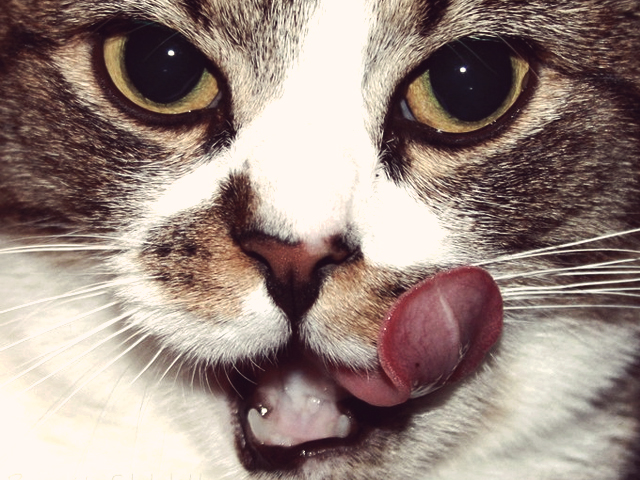Science Confirms That Your Cat's Mouth Is Full Of Disgusting Germs
Feb 14, 2014 21:38

We all know that watching cats lick things is about as cute as it gets, but you might want to be extra careful around their fangs.
According to one three-year retrospective study, their teeth are actually design to function like little disease syringes that can essentially inject bacteria and debris deeply and directly into your tendons and bones. Ouch.
This was discovered by researchers after reviewing the records of 193 people who came to Mayo Clinic Hospital with cat bites to the hand:
Thirty-six
victims were immediately admitted to the hospital, where they stayed an
average of three days. Another 154 were treated with oral antibiotics as
outpatients, although 21 of them eventually had to be hospitalized.
Complications included nerve involvement, abscesses and loss of joint
mobility.
..."The tendon sheaths and joints are superficial in the hand, and cat bites penetrate easily, seeding those spaces with the germ, " he added. "Once it's in there, it can grow quite rapidly in fluid-filled spaces that don't have blood circulation, and surgery is often required. That's an important message: don't ignore a cat bite."
So the next time your cat decides to treat your skin like its own personal snack, you should definitely get yourself down to the nearest hospital...."The tendon sheaths and joints are superficial in the hand, and cat bites penetrate easily, seeding those spaces with the germ, " he added. "Once it's in there, it can grow quite rapidly in fluid-filled spaces that don't have blood circulation, and surgery is often required. That's an important message: don't ignore a cat bite."
[New York Times]







































































